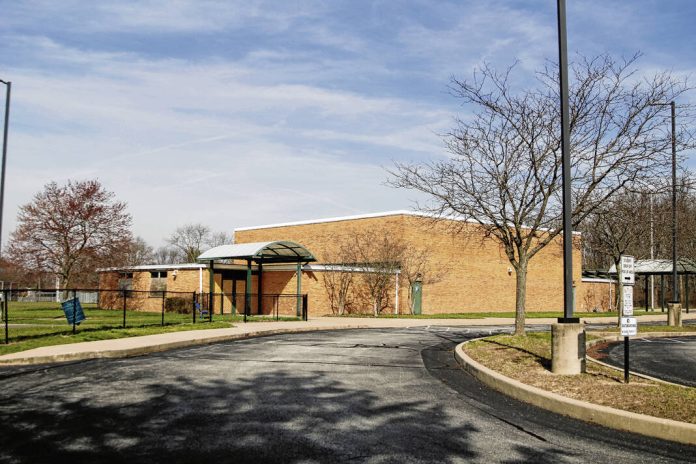Clark-Pleasant Community Schools plans to house a new alternative education program at the former Sawmill Woods Elementary.
The school will serve K-5 students and is believed to be the first in Johnson County, said Cassandra Shipp, assistant superintendent. Originally, the school planned to turn the former elementary school into a community center, but plans changed when the school’s needs changed, Shipp said at a school board meeting.
The new program will still serve the community, just in a different capacity.
The purpose of the school, located at 700 Sawmill Road, New Whiteland, is to help students experiencing significant trauma or behavioral issues where a traditional school setting can’t. Classroom sizes are smaller with a student-to-teacher ratio of 15:1 so students can receive a more individualized approach to their education, Shipp said.
The goal is to equip students with the skills they need to function and do well in school. They hope to equip students to go back to their homeschool, rather than stay at the alternative program, she said.
“We want to be able to address the need early, support the children, hopefully, they go back to their homeschool and they are a success. That is the goal,” Shipp said.
Students, especially younger ones, struggle with managing anger and other emotions and being withdrawn from social activities, Shipp said. Depression and anxiety in children has increased over time, according to the Centers for Disease Control and Prevention.
Approximately 9.4% of children ages 3-17 are diagnosed with anxiety, 8.9% with behavior problems and 4.4.% with depression, according to the CDC. Almost 1 in 2 of children with depression, also experienced anxiety and behavior problems. Behavior problems are also more common among children aged 6-11 than younger or older children, the CDC says.
There is already alternative education programming for Clark-Pleasant middle and high school students through Simon Youth Academy, but none for younger students. It is hoped that the school will help address student needs and behavioral issues sooner rather than later, Shipp said.
“My thing was, why do we wait until our kids get in secondary if we know and see things, why aren’t we trying to help them earlier so they know how to cope or maybe change or redirect themselves, or deal with whatever that trauma they had when they were little infants or toddlers that are starting to come up when they’re in school — why aren’t we equipping them now than later?” Shipp said.
Eventually, they would like to open the program up to other schools in Johnson County. For now, the school still needs to finalize plans and get the building ready for students once again. The school could open as soon as February 2025, but that will be dependent on construction, Shipp said.
A board of nearly 30 educators, including Shipp and others from area elementary schools, are spearheading the development and implementation of the school, she said. There are still many moving pieces behind the scenes and the committee hopes to share more details about the school soon, she said.
The school is still in the early stages of design. Lancer Associates Architecture was approved as the architect for the project at the Feb. 19 school board meeting.
Shipp hopes to change the narrative around alternative schools with the new program and that parents will see it as a tool to help their children who are struggling with mental health or trauma.
“Some people might use the term ‘Oh those children are bad.’ No, these are not children that are what people say are ‘bad.’ These are children that have dealt with trauma, it’s impacting how they communicate,” Shipp said. “It may impact their academics, but they need a different learning environment outside of coming into the classroom to sit and then you get up and go to lunch or recess. So why not try to address their needs earlier?”
The school will serve other purposes for community members as well, Shipp said.
For example, the athletic fields will still be in use and will eventually have accessible restrooms instead of porta-potties. The community will also be able to host events and rent out space at the school as well, Shipp said.
The most “exciting” feature will be a new community garden where students from the middle school alternative program will help the elementary students with the garden, she said.





